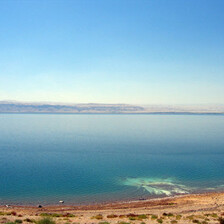The Electronic Intifada 9 October 2005

Suppose that Israel’s withdrawal had taken place in the context of an agreement with the Palestinian Authority (PA). Then the two would have reached a single definition for the status of the evacuated area. But because Israel acted alone, it believes it has the right to decide. Israel’s National Security Council and Justice Ministry propose calling the withdrawal “the end of occupation.” Prime Minister Ariel Sharon and the Foreign Ministry fear that this definition would expose them to demands that they “un-occupy” the West Bank too. As an alternative, they opted for the phrase, “the end of Israeli responsibility.” In the spirit of Oslo, they stress that responsibility has passed to the PA.
Both conceptions are inadequate. The fourth Hague Convention (1907) establishes that occupation is over only when the occupying power stops controlling air, sea and land. Israel is far from doing that. According to the Disengagement Plan, it will continue to cruise Gaza’s airspace and territorial waters. It demands that the Rafah Crossing between the Strip and Egypt, while open to people, must be closed to shipments of goods; instead, these are to cross through a terminal within Israeli territory, at Kerem Shalom, so that Israel can supervise.
When Sharon prefers to speak of an “end to Israeli responsibility,” he means, above all, economic responsibility. He will discover, however, that Gaza, for its part, cannot disengage. Gazans cannot survive without access to jobs and export markets in Israel.
Israel, for the moment, doesn’t trouble itself about their fate. It prefers to pluck the political fruits of Sharon’s “courageous” step. He is today the darling of the Americans, the international community, and even of the Israeli Left. Gideon Levi, for example, published an op-ed piece in Ha’aretz on August 28 entitled, “Sharon for Leader of the Labor Party.” In a play on an old Zionist saying, he began with these words: “A party without a leader seeks a leader without a party.” He closed with this: “Ariel Sharon to head Labor? Not a pleasant thought, but maybe not so terrible either, considering the alternative” (i.e., a victory for Binyamin Netanyahu as head of the Likud). Gideon Levi is by no means alone.
In addition to Ariel Sharon, another side seeks to pluck the political fruits of disengagement. The Hamas leaders cultivate euphoria as they prepare to run for the Palestinian parliament in January 2006. (It is their first election bid.) The website of their al-Qassam Brigades has published the pictures of the organization’s senior military leaders. Among recent TV interviews, one stood out: a talk with al-Qassam Commander Muhammad Def, who has escaped Israeli assassination attempts several times.
Asked if Israel’s withdrawal was a result of PA political efforts or armed resistance, Def replied: “Everyone knows it resulted from the constant opposition and the numerous sacrifices. We are well aware that the agreements produced nothing… Resistance, on the other hand, produced more than just the retreat of the occupation to its pre-Intifada positions. It produced the evacuation of all the settlements, and that is unprecedented.”
The words of Muhammad Def and other Hamas leaders stand in clear contradiction to the organization’s recent actions. For if the armed struggle caused Israel’s departure from Gaza, why not keep using so successful a method? Why emerge from underground? Why not stay as before and liberate the West Bank too? The Hamas leaders don’t tell the whole story. Sharon withdrew from Gaza because he had failed to gain a decisive strategic advantage. He hoped to improve Israel’s cards by unilateral action. But Hamas’ recent turn to political channels also derives from the lack of a decisive strategic advantage.

Alex Fishman, the military correspondent of Yediot Aharonot, reported on September 16, 2005 about the futuristic barrier (“unlike anything in the world”) that Israel is making for the Gaza Strip. It will extend from the border to a distance of three to five kilometers within Israeli territory. “The Palestinians will see only two fences, many mobile pillboxes, and a forest of antennas.” Distant war-rooms will observe all movement. They will be able to respond with gunfire by remote control. Electronic devices will detect rocket-launchings and enable immediate responses from the ground and air. Other devices will detect tunneling. The entire area will be covered by a fine mesh of sensors, enabling patrols to close in quickly on any patch of earth in which the slightest suspicion of movement arises. Robots are also planned. The intensity of this coverage is intended to compensate for the lack of a substantial territorial buffer between the Strip and Israeli towns.
While Hamas engages in dubious celebration, the PA frets. On the morning after the withdrawal, Hisham Abed al-Razek of the PA said: “I have no joy in my heart. We are left in the prison of Gaza. Disengagement is an Israeli measure intended to make the kids happy for a couple of days, no more than that. The Israeli occupation surrounds us on every side: from the sea, the air, the land and in the border crossings. It surrounds and it suffocates.” (Yediot Aharonot, Sept. 12)
Bilal al-Hassan, writing in Sharq al-Awsat on Sept. 4, holds that Sharon is no less extreme than Binyamin Netanyahu. “Sharon officially proclaims that Jerusalem is outside any negotiations with the Palestinians. So too are the settlement blocs around Jerusalem. He calls on the Palestinians to put down ‘terrorism’ in order to begin with the Road Map. But let’s suppose that the Palestinians were to accept Israeli logic. Suppose they were to pass the test of squashing ‘terrorism.’ What would Sharon give in return? He’d give 42% of the land in the West Bank, divided by Israeli settlements into three cantons, with a barrier separating people from their farmlands. And then he’d say: ‘Establish your state in these cantons!’ Is there a Palestinian leader somewhere who would find such an offer enticing - to the point of embarking on a civil war?”
Instead of civil war, we are presently witnessing anarchy within the PA itself. At dawn on September 7, more than a hundred commandos from the Popular Resistance Committees in Gaza attacked the house of Musa Arafat, former Gaza Security chief, dragging him out and executing him in the street. The Popular Committees belong not to some rival organization like Hamas or Jihad, but to the dominant faction in the PA: Fatah.
The irony is that the supporters of disengagement - whether on the Israeli side, in the PA or in Hamas - have deepened the conflict and trapped the Palestinian people. Each has done so for its own reasons:
1. Israel.
From Israel’s viewpoint, disengagement from Gaza has given it the opportunity to freeze the occupation in the West Bank and to get American support for keeping its settlement blocs. It has managed to separate Gaza from the West Bank, which it is walling off without prospect of a political agreement. Not two days had passed after the withdrawal, when Defense Minister Shaul Mofaz ruled that the government would commence to strengthen the settlement blocs. This process, he said, was part of the change in agenda following disengagement. (Ha’aretz, Sept. 14)
Moreover, Israel has announced the goal of eliminating the employment of Palestinians on its territory by 2008. The official jobless rate in the Gaza Strip and the West Bank is already 50%. According to a new report by Harvard University, by 2010 the working-age population in the Strip will increase to the point that 250,000 additional jobs will be needed. Claiming that the Palestinians must now prove they can build an economy in Gaza, Israel attempts to slough off responsibility for the systematic economic destruction it wreaked for 38 years.
2. The Palestinian Authority.
By its willingness to take responsibility in the vacated areas despite the lack of negotiations, the PA has itself to blame for the weakened bargaining position in which it finds itself. It will be responsible for the division that is about to take place between Gaza and the West Bank: it should have insisted on a territorial connection. More broadly, it will be responsible for the lack of development and the continuing poverty of its people.
America and Israel are already making demands that the PA cannot fulfill. In the present circumstances, it cannot take control of the Strip. If there isn’t utter chaos, control will pass to Hamas. This organization has proved itself as a charitable institution for the Palestinian poor, but to govern a nation is a different matter.
3. Hamas.
Hamas likes to compare itself with Hizballah, which forced Israel to withdraw completely from Lebanon. But when Israel pulled out of Lebanon, it really did end the occupation there. Israel is far from ending the occupation of Gaza, much less the West Bank. Moreover, the Israeli withdrawal deprived Hizballah of its raison d’etre; ever since, the militia has had difficulty justifying its retention of arms - or, for that matter, its existence.
The Hizballah victory was tactical. At the strategic level, the victory went to Israel: it strengthened its (and America’s) Lebanese allies at the expense of Syria and Iran. Hizballah today is forced to dicker about the conditions for giving up its weapons. Israel goes on arming itself while winning international approval because of its “courageous” steps in Lebanon and Gaza.
It is not yet time, then, to celebrate. The occupation isn’t over. We stand before a dangerous situation, in which Israel’s unilateral measures gain support not only from America but Europe too. Recently we have seen how unfettered capitalism - embodied in an American president who refused to sign the Kyoto Protocol - can backfire on its proponents, devastating America’s own Gulf Coast, and how little prepared or capable Washington was.
What can we expect then for the hurricane that is brewing here, when 1.3 million people are mewed up in the world’s most crowded ghetto? The anarchy in the Occupied Territories will spill into Israel as a third Intifada. Israel is trying to forestall the danger as do wealthy neighborhoods all over the world: by erecting a sophisticated super-fence. But technical solutions will not prevail against the coming Intifada of the Hungry.
This article was published in Challenge, issue no. 93.
Related Links
BY TOPIC: Gaza “Disengagement”





